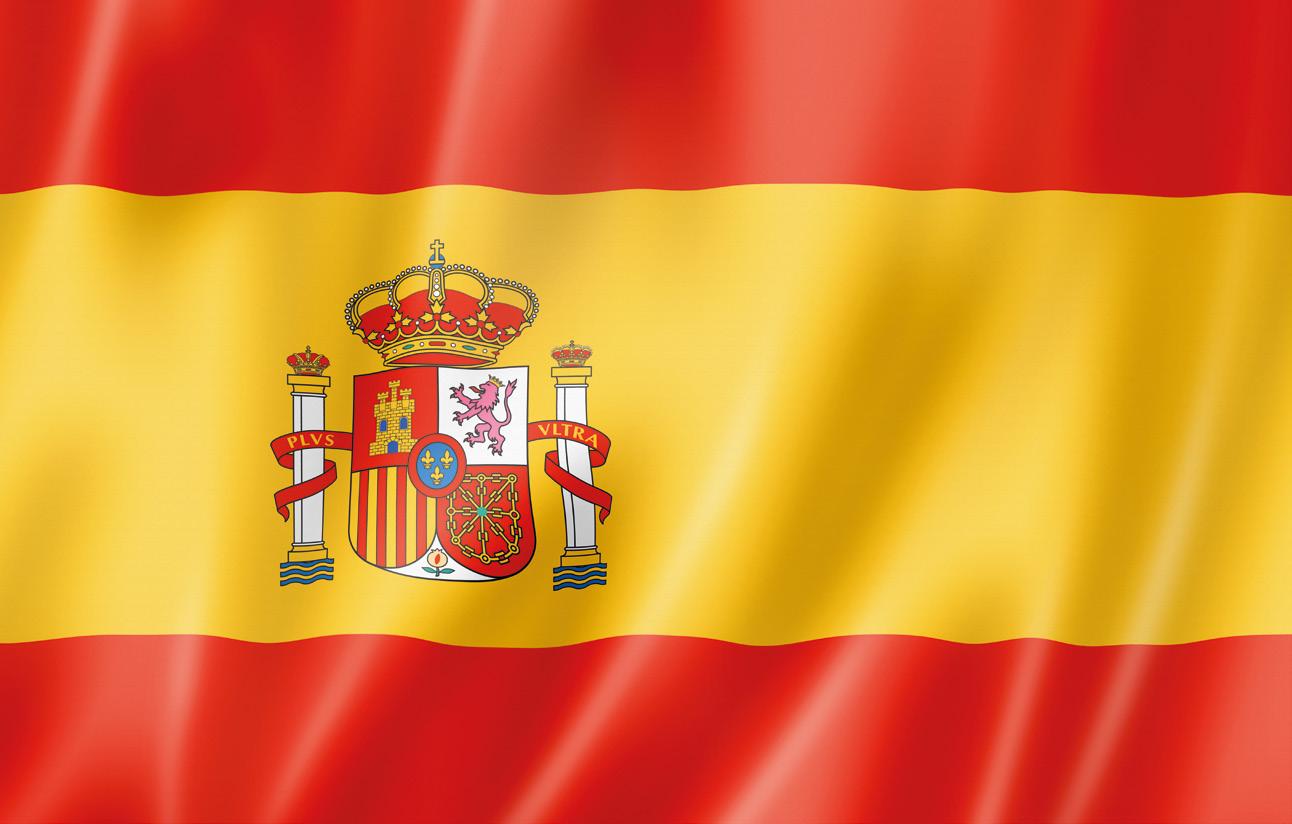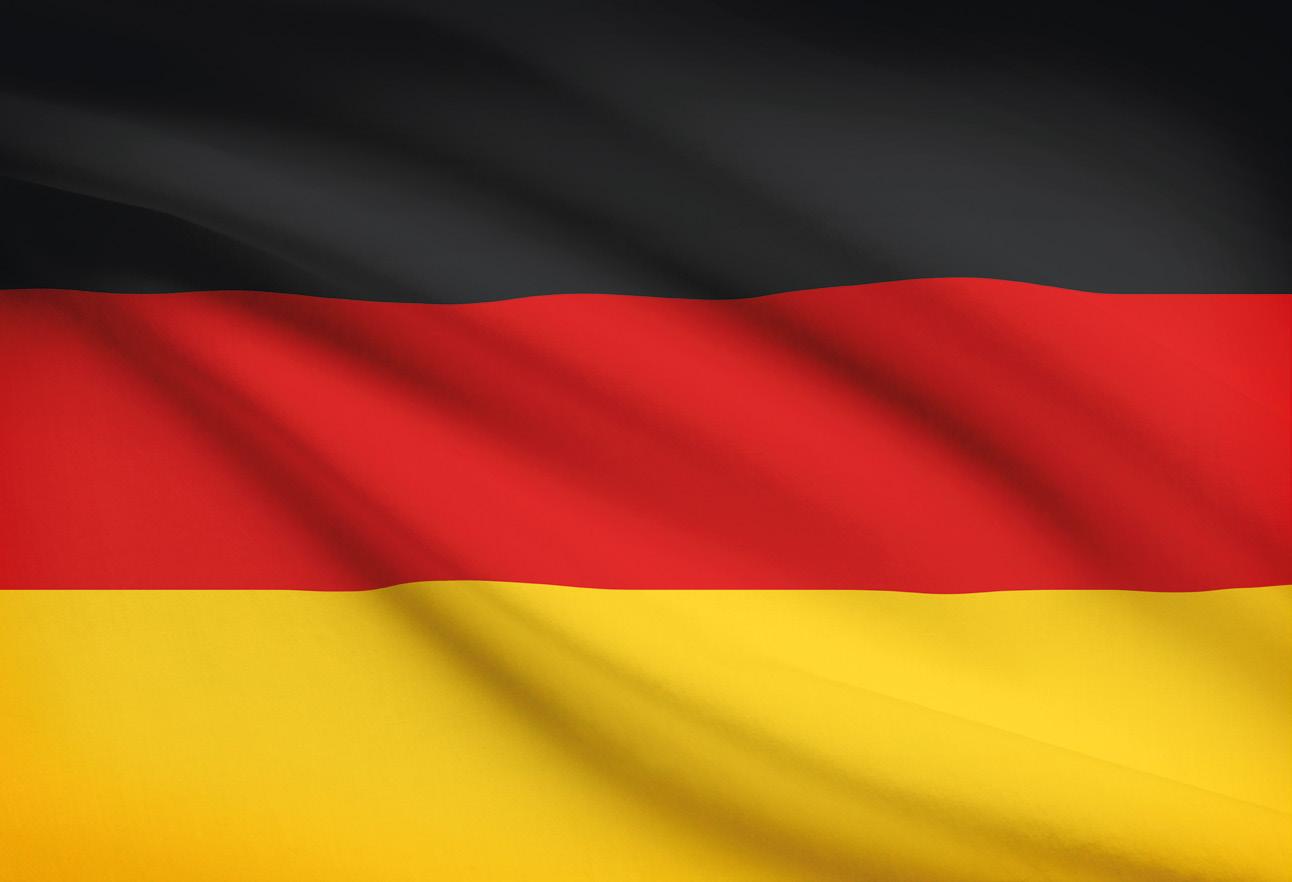
7 minute read
Gaming Legislation
Update Report on Gaming Legislation in Spain, Germany and France By: Marko Tomic, Partner, Law Firm Anđelović, Siketić & Tomić d.o.o. Zagreb
1. Spain
Gambling in Spain is regulated under a Gambling Act which entered into force in 2011 and to this date underwent more than a few amendments with new ones in the horizon for 2021. Private operation of games other than lotteries (still a monopoly) was authorized upon implementation and development of the Gambling Act.
The Gambling Act defines four specific types of game of chance (lotteries, betting, raffles and contests) and one general category of ‘other games’ that serves as a catch-all for activities that fall under the general definition of gambling but not under any of the four specific games definitions.
The Gambling Act envisaged the formation of a new regulatory body, i.e. the National Gambling Commission (CNJ). However, the CNJ has yet to be formally set up and there are no expectations that this will happen in near future. Until this happens, Directorate General for Gambling Regulation (DGOJ) will continue to exercise regulatory powers in respect to organization of games of chance in Spain.
Regulation of games of chance differs between online gaming offered at the federal level and landbased gaming or online games that are offered at regional level. If a game is not regulated, it is not permitted. Bearing in mind that Spain has 17 autonomous regions which each have their own licensing regime it is safe to say that conflict between the authorities of different regions is quite common.
With respect to licensing, the Gambling Act envisions two types of licenses: (i) general licenses which may be granted for a 10-year period with the possibility for renewal for a subsequent 10year period, except for cases in which the number of general licenses awarded is limited under the Gambling Act; and (ii) specific licenses for individual games (e.g. exchange betting) granted to operators holding a general license and which are granted to a one-to-five-year term with the possibility for renewal.
Any sort of advertising, sponsorship or promotional activities related to any of the gambling activities regulated by the Gambling Act is forbidden unless permitted in the respective general and specific license. Further, in November 2020 Spanish government introduced an additional restriction for commercials on TV/radio/Internet to a narrow window of late-night times (from 1 a.m.-5 a.m.), eliminated gambling sponsorship of sports entities and limited operators offering bonuses only to existing customers.
Furthermore, existing online advertising contracts will be allowed to continue through May 1, 2021. After that, operators will only be allowed to promote via their own gambling sites. Operators who fail to abide by the new rules could face penalties starting
at €100k and ranging up to €1m, along with possible suspension of their license for up to six months.
The latest novelty is that the government intends to modify the Gaming Law to include Loot boxes or virtual items users can purchase in video games with real money as a game of chance. The government will draft the final text of the law during the consultation period, and aims for it to be published by mid-2021, focusing amendments on aligning responsible gambling standards and consumer safeguards across Spain’s 17 autonomous regions.

2. Germany
The Interstate Treaty on Gambling from 2012 as amended on January 1, 2020 (“Treaty”) creates the main legal framework governing both land-based and online gambling in Germany and sets out the main objectives and core elements of German gambling regulation. Provisions of the same are implemented into state law by the transposition acts and the gambling laws of each of 16 states whereby there is no comprehensive list of permissible and non-permissible games or products.
The Treaty maintains a state monopoly on the operation of lotteries, stipulates a total ban on online casino operations (with the exception granted in 2019 for Germany’s most northern state, SchleswigHolstein, to deviate from the Interstate Treaty’s total ban and introduces a law that will revalidate Schleswig-Holstein online casino licenses, which have expired in 2013) and provides for a licensing procedure for sports betting. As a curiosity, a vast majority of land-based casinos in Germany are still run by the state.
Germany has more than one regulator. The type of games of chance offered and where the same is offered will be crucial factors when determining which regulator will be responsible. The responsibilities range from individual municipalities acting as regulators to respective ministries of the German states to authorities that have assumed a central responsibility for a certain sector and, as such, act on behalf of all German states in relation to this sector. The Regional Council of Darmstadt in the state of Hesse is responsible for conducting the licensing process in Germany. As noted above, the Treaty generally prohibits the operation of online games of chance with the exception for sports betting, horse-race betting and lotteries. Thus, online casinos are currently not legal although there is discussion ongoing for this position to be relaxed (permission of virtual slot machines and of online poker) in the envisioned amendments to the Treaty planned for 2021. Respective amendments also envision no advertising for the forms just mentioned may be broadcast either on TV or on the Internet between 6 a.m. and 9 p.m..
When it comes to licensing there is no uniform regime in place whereby licensing of sports betting was permitted as of 1 January 2020 in addition to already existing lottery, casino, slot machine and horse-racing licensing.
Based on the information available online, most of the enforcement activity regarding offshore operators tends to be targeted at EU-licensed (not-German) operators for reasons of practicality rather than at operators that do not have adequate licensing or sufficient consumer protection measures in place. Changes envisioned for 2021 would allow exemption from enforcement for licensable products in Germany if in line with the Treaty.
3. France
Even though France has a long tradition of games of chance, its legal framework regulating games of chance is still considered quite rigid. The Security Code enacted on 1 May 2012 comprises a significant portion of the gambling regulations in French law while online gambling was addressed and regulated by the Online Gambling Act already in 2010. Respective Online Gambling Act refers solely to sports betting, horse betting and club games (only poker is currently permitted).
Land-based casinos are strictly regulated venues and as such must provide three different activities (entertainment, catering and games) and are not allowed to offer all casino games without limitation (only those for which the operator holds a valid license). In addition, apart from sports betting, the only authorized forms of betting in France are horse and greyhound betting. Importing and/or manufacturing slot machines is prohibited under the Security Code whereby certain exceptions apply to casinos.
The regulation of gambling and organization of games of chance in general is carried out by different governmental authorities depending on whether it is land-based gambling or online gambling.
With respect to licensing, sports betting and most lotteries fall under the monopoly of a state-owned corporation while a special legal entity created by horse racing companies to manage their betting activities has a monopoly on the organization of horse betting. Licensing regimes available to private entities are in place for casinos and clubs.
Regarding the licensing of online gambling, an online operator can only offer gambling products in France (i.e. websites targeting French residents) if licensed by a competent authority before commencing gambling operations. Thus, platform providers do not need to apply for a license directly, but operators seeking a license must have the gaming software that they use approved by the competent authority, whereby all their suppliers must be mentioned in the license application.
Advertising is permitted for all establishments or websites licensed or authorized under the applicable legislation. However, many rules restrict advertising games of chance, in particular in relation to the protection of minors or the fight against addiction. Advertisement for online-gambling websites must be identified as such and contain written or verbal warning messages depending on the platform on which the advertising is offered. If the advertising is offered online, the warning message must contain a link to a website dedicated to the fight against addiction.
As in the whole industry, in the recent period many rules on blocking of ISPs and payments of unlicensed operators were introduced. Further to this, one of the recent substantial modifications to the legal status of online operators is the amendment of the Security Code. It now states that online skill games requiring a financial contribution from the player and triggering the hope of a gain are de facto illegal because they cannot be licensed. The main purpose of this amendment is to prevent gambling offers getting around the applicable regulations and banning what were (considered to be) abusive practices.










